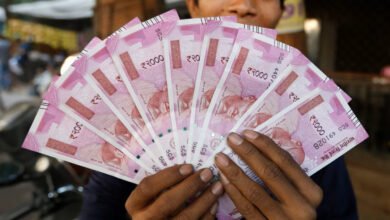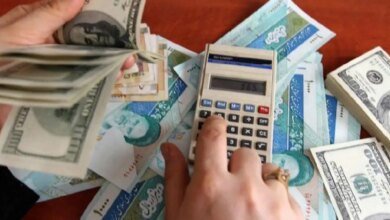Israel-Hamas War Live Updates: Strikes Pound Rafah, Flatten Large Mosque

A song called “October Rain” might simply be a ballad about dreary fall weather. But in the charged atmosphere following the Hamas-led attacks on Israel of Oct. 7, the title could also signal a lament about that tragedy, or a rallying call to stand firm against terrorism.
This week, the meaning of “October Rain” — a song that very few people have heard — became a contested question when newspapers in Israel reported that a song with that name had been chosen to represent the country in this year’s Eurovision Song Contest.
Although initial reports gave few details of the song, they sparked a furor on social media. Some Eurovision fans complained that the track was clearly referring to Oct. 7 and should not be allowed in the nonpolitical event in which pop stars, representing countries, compete against each other each May.
Since Eurovision began in 1956, the European Broadcasting Union, which organizes the contest, has forbidden songs that make political statements, insisting that the competition should unify, rather than divide. Every year, the union vets proposed lyrics to ensure they do not undermine that principle. Although Israel is not in Europe, its broadcaster is a member of the European Broadcasting Union, making the country eligible to compete in Eurovision.
On Wednesday, the news division of Kan, Israel’s public broadcaster, reported that the organization had begun discussions with the European Broadcasting Union over the suitability of “October Rain.” If the union refused to approve the track, the report speculated, Israel would not submit an alternative and would therefore be barred from the contest.
Miki Zohar, the country’s culture minister, said in a post on X on Wednesday that it would be “scandalous” if the song wasn’t allowed to compete.
In a letter sent to the European Broadcasting Union on Thursday, seen by The New York Times, Zohar put the case for “October Rain.” It was “an emotional song, discussing regeneration and rebirth,” he wrote. And while it reflected “the current public sentiment in Israel these days,” he said, that doesn’t make it “a political song.” (A spokesman for the minister said that Zohar hadn’t heard the “confidential” song, but had seen “a large part” of its lyrics.)
A European Broadcasting Union spokeswoman said in an email on Thursday that it was “currently in the process of scrutinizing the lyrics,” as it does for all proposed Eurovision tracks. “If a song is deemed unacceptable for any reason, broadcasters are then given the opportunity to submit a new song or new lyrics,” the spokeswoman added.
Even before this week’s uproar, Israel’s participation in this year’s Eurovision, which will be held in Malmo, Sweden, had cast a shadow over the event. As the death toll from Israel’s military offensive in Gaza has mounted, hundreds of musicians in countries including Sweden, Denmark and Iceland have signed petitions urging the European Broadcasting Union to ban Israel, following a similar decision in 2022 to ban Russia after it invaded Ukraine.
The European Broadcasting Union has repeatedly dismissed the comparison between Israel and Russia. “We understand the concerns and deeply held views around the current conflict in the Middle East,” the union said in a statement this month, but Eurovision was “not a contest between governments.”
At this year’s Eurovision, Israel will be represented by Eden Golan, a 20-year-old pop singer who was selected earlier this month when she won a TV talent show called “Rising Star,” singing an Aerosmith cover. During that show’s final, Golan referred to the roughly 130 hostages Israel believes Hamas is holding in Gaza. “We won’t truly be OK until everyone returns home,” she said.
Which song Golan will sing at Eurovision, however, is not only up to her. Kan has been evaluating potential tracks, and although it submitted “October Rain” for approval, the broadcaster is not scheduled to officially announce Israel’s song until March 10, allowing time for it to be changed, if necessary.
Throughout Eurovision’s history, the European Broadcasting Union has occasionally intervened when it detected political overtones in proposed entries, said Chris West, the author of a history of Eurovision. In 2009, he said, Georgia pulled out of the contest because the organizers objected to a song called “We Don’t Wanna Put In.” The song was seen as a statement against President Vladimir V. Putin of Russia, West said.
And in 2015, Armenia changed the title of its entry “Don’t Deny,” because it was widely interpreted as a reference to Turkey’s denial of the Ottoman Empire’s genocide of Armenians. The song was renamed “Face the Shadow,” West said.
“October Rain” seemed political from its title, West said, but Israel might claim it has nothing to do with last year’s attacks, or even that the country has a right to sing about the impact of Hamas’s atrocities.
“Eurovision’s organizers have a really difficult job of deciding where the line is,” West said.





